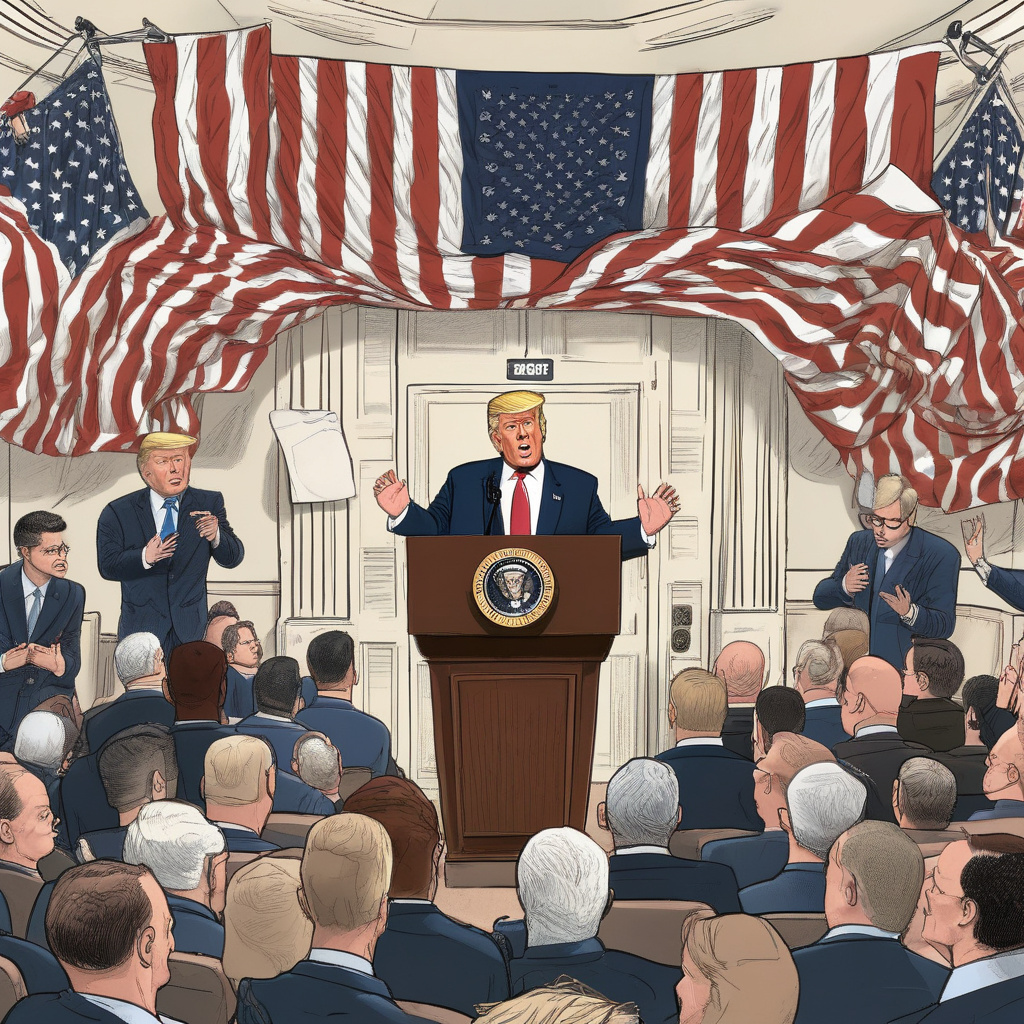Trump’s Auto Tariff Rollback: A Step Forward for Ford, GM, and Stellantis
In a recent move that has stirred the automotive industry, former President Donald Trump announced an easing of auto tariffs. This decision has been met with a mix of relief and caution by major players in the sector, notably Ford, GM, and Stellantis. While the rollback is seen as a positive step towards stabilizing the market, concerns about lingering supply chain challenges continue to loom large.
Ford, GM, and Stellantis, three of the most prominent American automakers, have welcomed Trump’s decision to ease auto tariffs. The move is expected to have a significant impact on their operations, potentially leading to lower production costs and increased competitiveness in both domestic and international markets. By reducing tariffs on imported auto parts and vehicles, the manufacturers are hopeful that they can streamline their supply chains and improve overall efficiency.
Despite the optimistic outlook, there are still pressing challenges that the industry must address. Chief among these is the issue of supply chain disruptions, which have been exacerbated by the ongoing global pandemic. The pandemic has exposed vulnerabilities in supply chains worldwide, leading to delays in production and distribution for many automakers. While Trump’s tariff rollback is a step in the right direction, it is not a panacea for the underlying issues plaguing the industry.
For Ford, GM, and Stellantis, navigating these supply chain challenges will require a multi-faceted approach. This may involve diversifying sourcing locations, investing in technology to enhance supply chain visibility, and building stronger partnerships with suppliers. By taking proactive measures to strengthen their supply chains, automakers can better position themselves to weather future disruptions and ensure continuity in their operations.
Furthermore, the easing of auto tariffs under the Trump administration underscores the broader impact of government policies on the automotive industry. Regulatory decisions, trade agreements, and economic incentives all play a crucial role in shaping the operating environment for automakers. As such, industry leaders must stay attuned to policy developments and anticipate how these changes may affect their businesses.
Looking ahead, Ford, GM, and Stellantis are cautiously optimistic about the future of the automotive industry under the Biden administration. While the easing of auto tariffs represents a positive development, there is still much work to be done to address the complex challenges facing the sector. By staying agile, adaptive, and forward-thinking, automakers can position themselves for long-term success in an ever-changing marketplace.
In conclusion, Trump’s decision to ease auto tariffs marks a significant milestone for Ford, GM, and Stellantis. While the move is a step in the right direction, it is essential for automakers to remain vigilant in addressing supply chain challenges and adapting to evolving market conditions. By leveraging this opportunity to drive innovation and efficiency, these industry leaders can pave the way for a more resilient and competitive automotive sector.
#AutoIndustry, #TariffRollback, #SupplyChainChallenges, #AutomotiveSector, #GovernmentPolicies
